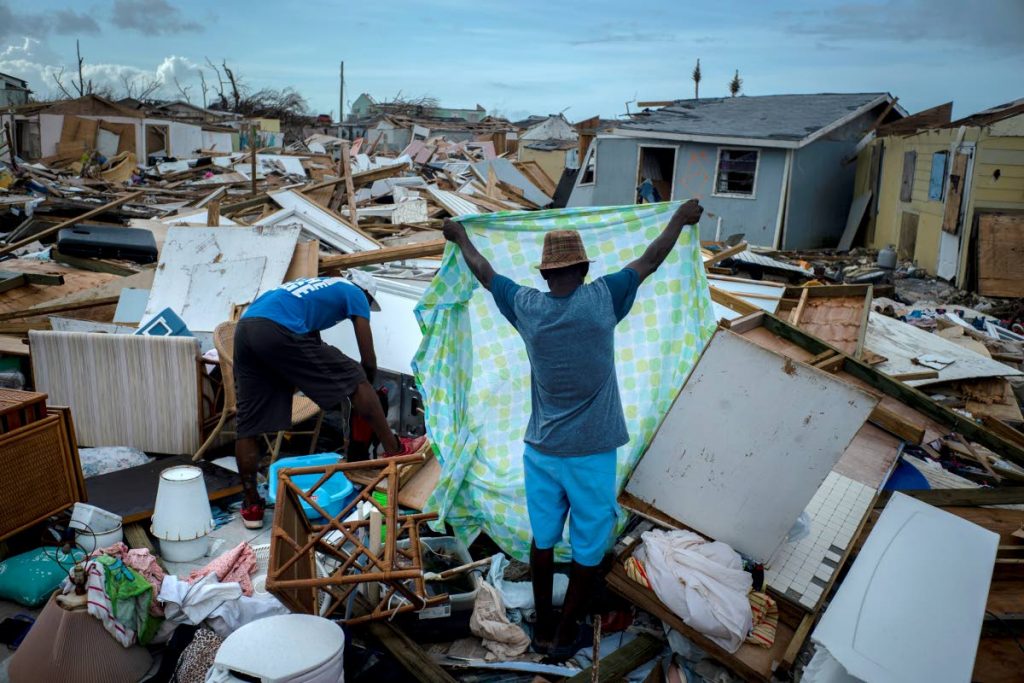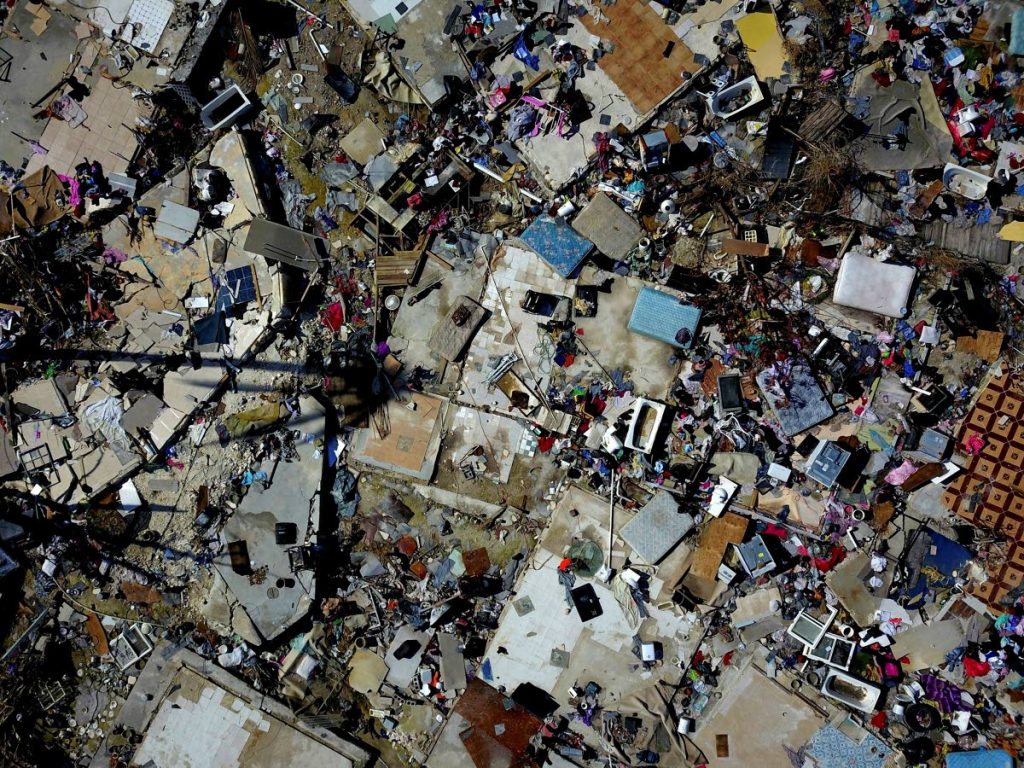Hell in the Bahamas

HURRICANE Dorian’s absolute devastation of Grand Bahama and the Abaco Islands in The Bahamas has once again underscored the disproportionate impact of climate change on small island developing states (SIDS) that contribute less than one per cent of greenhouse gas emissions (a primary contributor of global warming) but feel the brunt of its effects.
Last weekend, United Nations Secretary General Antonio Guterres visited The Bahamas to view first-hand the wreckage of Dorian’s aftermath. “I have never seen such systematic devastation. Hurricane Dorian has been classified as category five but I think it is category hell,” Guterres said as he surveyed the scene by air, as well as walking through the Mudd on Grand Bahama, one of the hardest hit locations – a shanty town populated by some of the poorest people on the island, many of them undocumented Haitian immigrants.
“While we have always had many hurricanes, they are now more intense, more frequent and powered by climate change. The international community should learn two things from this disaster. First, we need to stop climate change. Second, countries like The Bahamas do not contribute to climate change but are already experiencing its impact (and) deserve full support to fully respond to the humanitarian emergency and also to recover and build resilience,” the secretary general said.

At a press briefing on Monday, Guterres’ spokesman, Stephane Dujarric, emphasised the secretary general has been pushing for more awareness and solutions to the impact of climate change on SIDS through resilience and adaptation packages, as well as climate policies like the SAMOA pathway. “The secretary general will strongly support (the policies) so this is one of the messages that he has been giving to all member states,” Dujarric said. The UN will also have its climate summit next week during the general debates in New York.
Dorian, which some estimates suggest caused US$7 billion in damage, comes just two years after Hurricane Maria caused up to US$1.3 billion in damage to Dominica, or 224 per cent of its total GDP. Prime Minister Roosevelt Skerrit made an impassioned statement at the general debates that year urging more international cooperation and concern for SIDS. He also took the opportunity to announce Dominica’s intentions to become the first climate resilient country in the world.
Last year, TT ratified the Paris Agreement, signing on to a global agreement to reduce greenhouse gases and consequently stop global temperatures from rising above two degrees Celsius, limiting it to 1.5 degrees Celsius. Of course, implementation remains a challenge, especially in a country whose main economic earner is the hydrocarbon industry and with one million cars – most of which run on gasoline.
That said, the country is already starting to feel the effects of climate change, with a recent release from the Institute of Marine Affairs warning of possible coral bleaching in Tobago. This past dry season has also had the country grappling with restrictions since every major reservoir was well below maximum capacity. An Inter-American Development Bank blog post last year called climate change “the silent killer” of the TT economy, impacting everything from agriculture to health and tourism.

In her closing press conference on Monday, outgoing president of the UN General Assembly, Maria Fernanda Espinosa, said she no longer called it climate change. Instead, it was a climate emergency or a climate crisis – and should be treated as such.
“It is a paradox because we have known that we really had a problem in terms of how we were making profound changes in the atmosphere causing unprecedented effects on livelihoods of people, on security, food security, et cetera. And we have known we were in trouble perhaps 30 years ago or more.”
The first studies on climate change came out half a century ago, she added, so humanity has known what the problem is and has in many instances, found technological responses to the problem. “We know better how to be resilient, build safer cities and what measures to take yet we have not acted. This connection between the knowledge and technology in our capacity to act has a huge gap and we have to accept that. The decisions we have taken over the course of the UN convention on climate change haven’t been enough. So, we need to scale up. Even the Paris agreement is not enough.”
Countries need to comply with their nationally determined contributions or NDCs (of reduced greenhouse emissions), Espinosa said. TT's NDC plan states our national GHG emissions reduction of 15 per cent (from business as usual) by 2030 or 103 megatonnes in three key sectors: industry, power generation and transport. Our NDC also commits us to a 30 per cent reduction of transport emissions by 2030. Industry is our largest GHG emitting sector. In 2012, industry produced 74 per cent of our national GHG emissions, while the power generation and transport sectors were responsible for only seven per cent and 19 per cent respectively. How we’ve done so far is yet to be determined.
Even if the world managed to comply with all the NDCs in the Paris agreement it still goes close to three degrees, which would just wipe out some of the existing countries in our planet, Espinosa added. “We need to increase ambition. Increase resources, increase the access to low carbon technologies. Look at carbon neutral development as the only way forward for humanity because we know climate change can wipe us out. Not only countries in the south, not only the very vulnerable SIDS but all of us. It’s going to affect development, it’s going to affect security it’s going to affect investment.
“So, the UN is here to ask countries, you need to scale up your ambition. To go faster, quicker, more profoundly. In terms of climate change, we really need to walk the talk and we need to speed up and scale up our vision on all fronts in mitigation adaptation and in creating resilience,” Espinosa said.
* Carla Bridglal is Newsday’s associate business editor and a 2019 Dag Hammarskjold Journalism Fellow. For the next ten weeks, she will be reporting from the United Nations General Assembly in New York.


Comments
"Hell in the Bahamas"